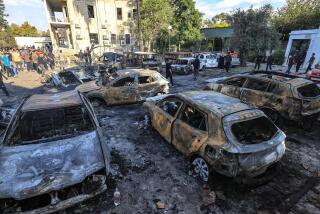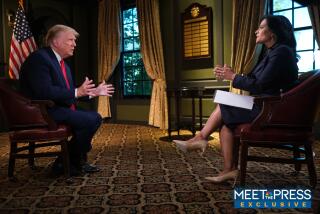Press Takes a Look at Itself
- Share via
No one has ever been either on the reporting or the being-reported-on end of newsgathering doubts the ubiquity of the nagging problems of accuracy and focus documented by David Shaw in his story on press self-examination (Part I, June 19). However, it has always seemed to me that the makers of one seemingly damning charge passed on by Shaw--that reporters “decide what their stories should say before they even begin their interviews and research”--miss a crucial point.
This is that before useful “interviews and research” can begin a reporter has to have a clear idea of what a newsworthy result would be. In science, a parallel process is called “forming a hypothesis,” and the business of research is going out in a systematic way to find either confirmation or disproof of the notion.
Both scientists and reporters can become enamored of or blinded by a hypothesis to the point of failing to look for contradicting evidence, ignoring such evidence, or even suppressing it. This is both bad reporting and bad science.
But such instances do not discredit the crucial and necessary role that the formation of hypotheses play in pursuing any kind of disciplined inquiry. Moving out of the realm of theory, if reporters are not able to give their editors a very clear idea of what their stories should say before they even begin, “they are not allowed to begin at all. To say this in no way implies that a reporter or editor has prejudged a situation. It simply means that she or he is gathering news; working on a story, as opposed to fishing aimlessly for random facts.
Journalists do have one problem scientists don’t. Viruses and electrons aren’t able to object when they are studied by a researcher with a theory to test. People--even people whose business is newsgathering--can and do.
ERIC MANKIN
Venice
More to Read
Sign up for Essential California
The most important California stories and recommendations in your inbox every morning.
You may occasionally receive promotional content from the Los Angeles Times.













